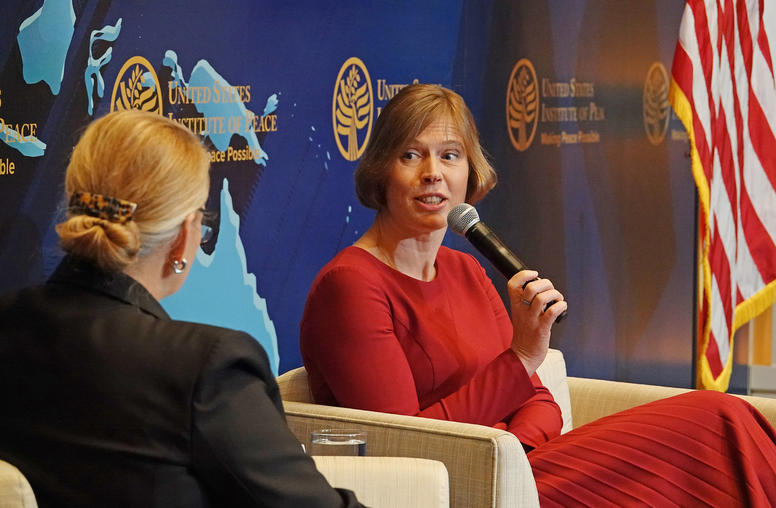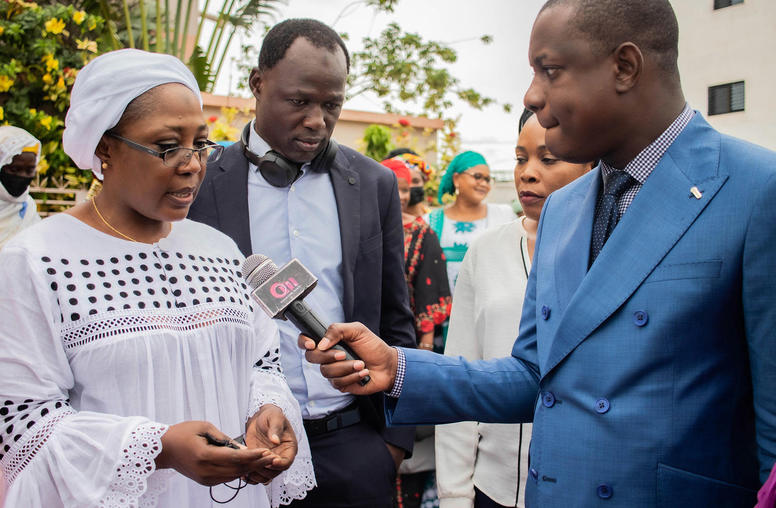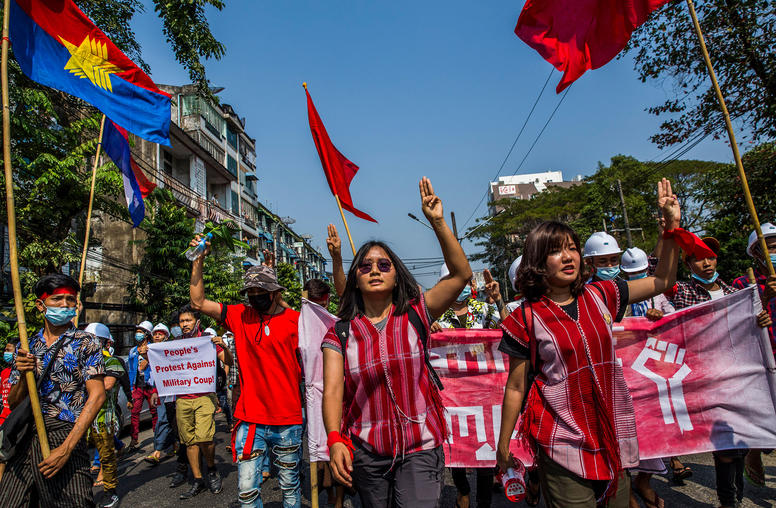Building on years of work, USIP continues to support inclusive and safe participation channels for women from all backgrounds, movements, and communities. On March 8, 2022, International Women’s Day, U.N. High Commissioner for Human Rights Michelle Bachelet shared a statement with USIP wherein she urged for more women negotiators, mediators and signatories to take part in major peace processes worldwide — noting that women bring a diverse range of critical skills needed to respond to the causes of violent conflict.
The Latest: Supporting Women Peacebuilders
Following Bachelet’s remarks, several USIP experts illustrated the concerns and opportunities for women peacebuilders in Afghanistan, Ukraine, and Pakistan. The 2022 International Women’s Day and the U.S. National Women’s History Month both present an opportunity to renew the global commitment to the protection of women’s full participation in the fields of security and peacebuilding.
Featured Resources

A Conversation with Former President of Estonia H.E. Kersti Kaljulaid
On May 10, USIP hosted an exclusive conversation with H.E. Kersti Kaljulaid on the current state of European security and the future of multilateral cooperation since Russia’s invasion of Ukraine.

Protecting the Participation of Women Peacebuilders
Not only does protecting women’s participation in public life and decision-making go hand-in-hand with democracy, but the former is actually a precondition for the latter.

Conversations with Leading Experts and Practitioners from Around the World
USIP hosted a series of Twitter Spaces between USIP experts and peacebuilding practitioners working in Afghanistan, Colombia, Myanmar, the Sahel and Ukraine to underscore the importance of protecting and facilitating women’s meaningful inclusion in peacebuilding.




